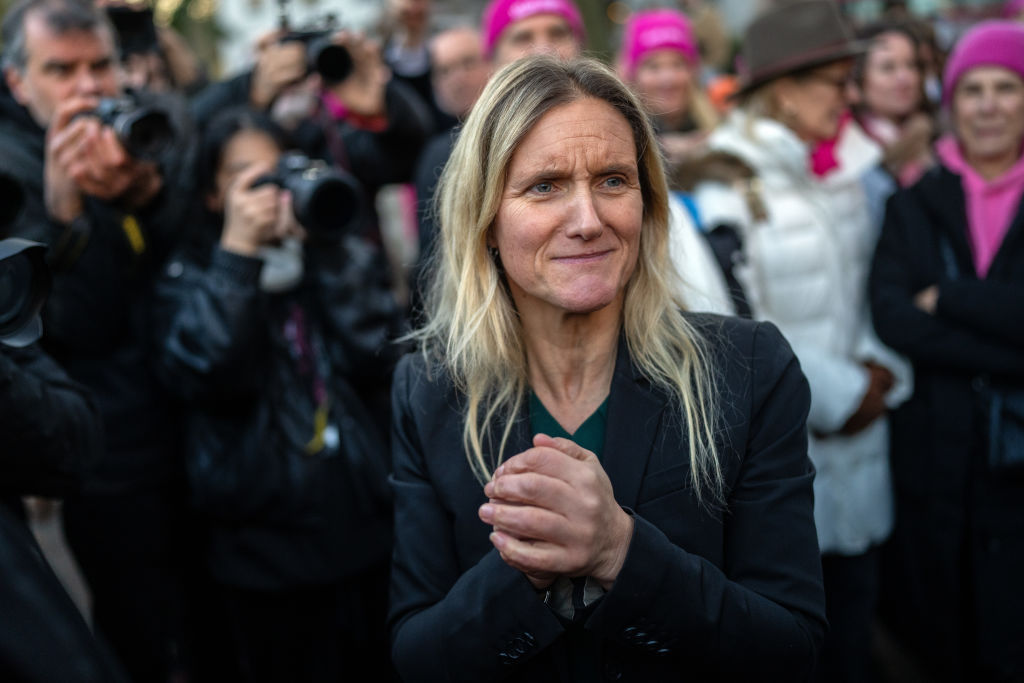To Westminster, where last week Kim Leadbeater’s Assisted Dying bill began the evidence session of committee stage. But rather than provide much needed clarification about the scope of suicide bill, the three days of evidence sessions instead threw up even more questions about the safety of the legislation. After paying careful attention to the hours of hearings, Mr S has compiled some of the worst moments of the evidence sessions that left critics more concerned than comforted…
Who’s there?
50 witnesses were called to give evidence last week – and it quickly emerged that there was nothing like an equal split between bill backers and sceptics. In fact, as revealed by Dan Hitchens on Twitter, of those who took a stance on the matter 80 per cent were in favour of assisted dying – while just a fifth were opposed. More than that, of the Australians invited to talk to the panel, all were euthanasia advocates. Talk about an uneven playing field, eh?
Suicide prevention
The committee stage has not been devoid of rather, er, abstract arguments. Take, for example, the claim made by Australian MP Alex Greenwich, who explained to a stony-faced Danny Kruger that: ‘Voluntary assisted dying is a form of suicide prevention.’ That’s a kind of doublethink even George Orwell would consider too far…
Knowledge gaps
In a particularly humbling moment for Leadbeater, Professor Gareth Owen of King’s College London noted that there were in fact ‘lots of gaps’ in the proposed legislation before hinting at the committee’s lack of understanding of the complexity of the whole thing. Chelsea Roff, founder of an eating disorder non-profit, made a similar point on Twitter after her hearing. ‘Overall the committee was respectful and civil,’ Roff wrote, ‘though at times painfully unaware of the international evidence on this and even the wording of the bill itself.’ Ouch.
Protecting the vulnerable
Speaking of research gaps, the second day of evidence sessions revealed that the bill simply hadn’t given much thought to disabled people. Baroness Falkner, the former chair of the Equality and Human Rights Commission, wasn’t pulling any punches, urging the government to do ‘an assessment of those human rights implications’. Meanwhile Fazilet Hadi of Disability Rights UK lamented the lack of scrutiny a private members’ bill allows, noting about the usual consultation period and time for debate that a bill of this nature would have allowed disabled people: ‘None of that has happened.’
Not that many on the committee bar Daniel Francis seemed all that bothered by this particular advice from their witnesses. The panel concluded that the government will only analyse the bill’s impact on the vulnerable after the committee stage concludes. Too little too late, eh?
Project Fear
Leadbeater – who was quick to interrupt and dismiss points of view she didn’t like – received a good dose of humility after the head of the Association for Palliative Medicine, Dr Sarah Cox, dressed her down over her ‘fear’ rhetoric. ‘I would also make a very brief point about the impact of the discussion about what dying looks like that this bill has raised,’ Cox remarked coolly, continuing:
The stories that have been told have suggested to many of the public that death is inevitably ugly and horrific and dramatic. Actually that’s made many people fearful who have been emailing me and saying I’m now afraid of dying and I wasn’t before. They may then choose assisted dying before they need to because of the fear instilled in them that death is inevitably horrible.
A sub-optimal look for the bill’s sponsor.
Overriding devolution
It is also not entirely clear how the legislation will affect devolved nations and Crown dependencies. The BMA’s Dr Martin Green raised concerns about legislation progressing at a different speed north and south of the border thanks to health being a devolved power while the Senedd recently voted against assisted dying. ‘The impact of this bill on devolved matters, if it became law, would be substantial’ in Wales, warned Professor Emyr Lewis, who suggested that certain aspects of the bill may require further consent motions if the Sewell convention is to be respected. Yet more uncertainty, then.
Doctor’s orders
And even the medics are up in arms at current proposals. General practitioners are adamant that assisted dying should not become part of normal practice. Dr Michael Mulholland from the Royal College of GPs insisted there must be a ‘standalone service’ while Dr Green remained firm that doctors should not be allowed to recommend euthanasia as a treatment option. Cue the dirty looks from Leadbeater…
Everyone makes mistakes
At risk of stating the obvious, Mr S would point out that predicting how long a person has left to live is not an exact science. Indeed questions on predicting patient outcomes in the UK prompted the GMC’s Mark Swindells to note that there is no robust data held on the accuracy of prognosis. Going off what we do have, as reported by the Telegraph, figures from the Department for Work and Pensions revealed that 20 per cent of those patients given six months to live are still alive three years later. Crikey. That certainly complicates things, doesn’t it?
Don’t study the small print
The discussion of terminal anorexia is just one rather shocking example of how bill backers batted away more awkward questions about assisted dying. Dr Naomi Richards – a Glasgow-based academic who has written papers stating that ‘not all planning for suicide should be unquestioningly pathologised’ – dismissed concerns that those with long-term eating disorders could become eligible for assisted dying as a ‘minor issue to get focused on’. She added: ‘This is not something that should be given a huge amount of time because it’s a distraction from the fact that really what we’re talking about is a new mode of dying.’ A distraction? Well that’s one way to look at it…
Limited scope
Leadbeater looked so keen to push her legislation through that she appeared willing to discount the advice of medical professionals who work with patients considering ending their lives. Take the psychiatrist Allan House, for example, who flagged concerns that the current proposals don’t take into account psychological and social factors that might lead a person to want to die – and instead only focus on whether the patient has capacity. ‘[The bill] just asks: ‘is this person able to make decisions?’. That’s what the assessment boils down to,’ House remarked scathingly.
Omissions
And one of the worst aspects of the whole committee session was, um, what wasn’t included. The committee decided not to hear from the Royal College of Psychiatrists or the British Geriatrics Society, while the experts that were there were rather bemused by the unreceptive nature of the panel. House took to social media to slam the committee’s ‘frustrating format and sense of minds made up’, adding tellingly: ‘Interesting to be told by Kim Leadbeater that I don’t understand suicide in life-limiting illness.’ Based on Leadbeater’s enthusiasm for listening, one might question the point of the committee stage altogether!








Comments